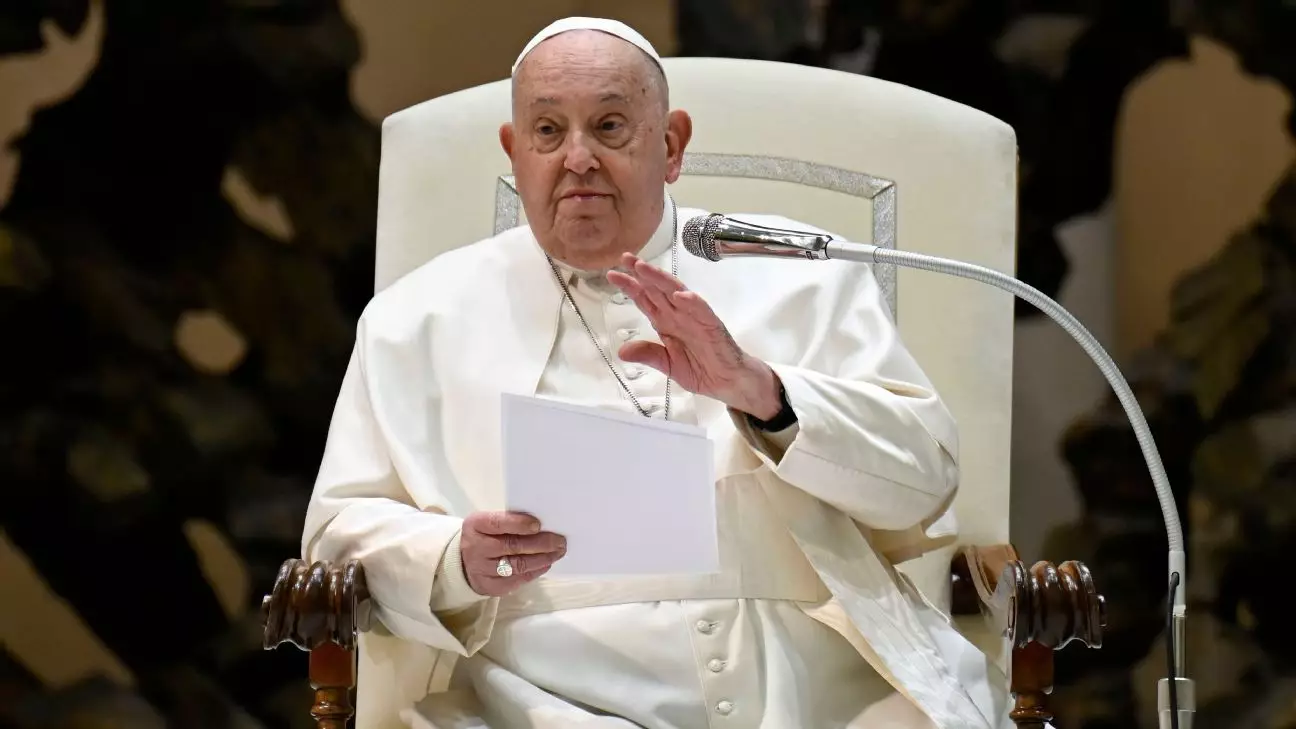The recent passing of Pope Francis, the first Latin American pontiff and ardent supporter of football, has left a profound mark on Italy, captivating a nation that reveres both its spiritual leader and the beautiful game. In a sudden turn of events, the Italian Serie A postponed its Monday fixtures in observance of Francis’s death at the age of 88. This gesture speaks volumes about the influence of Francis—not just as a spiritual leader but as a cultural icon who resonated deeply with the public, including football fans across the nation.
Serie A’s announcement highlights how intertwined the realms of sports and spirituality are in Italy. Football is not merely a game here; it is an integral part of the national identity, and the pope’s reverence for the sport adds layers to this relationship. The matches that were due to take place—Torino vs. Udinese, Cagliari vs. Fiorentina, and others—have now been rescheduled, emphasizing the gravity with which Francis’s death is being treated. The Italian Olympic Committee’s announcement of a minute’s silence before all sporting events this week further illustrates the collective mourning that permeates this country.
A Life Seamlessly Intertwined with Football
Pope Francis’s passion for football was well-documented throughout his papacy and life before it. His affection for the Argentine club San Lorenzo was emblematic of a man who wore his heart on his sleeve. Not just a passive admirer, he engaged with football’s cultural significance by promoting it as a tool for dialogue and unity. The pope’s ties to the sport were notably highlighted when San Lorenzo brought trophies to the Vatican, symbols of both football glory and a deep personal connection to the club.
His embrace of football is a reminder that religion and sports can serve as unifiers, transcending cultural and societal divisions. The scenes of him meeting with the legendary Diego Maradona are etched in the minds of many as emblematic moments where sportsmanship and spirituality merged. When Maradona, in typical grandiosity, claimed, “I’m Francis’s top fan,” it was both a humorous quip and a testament to the bond between an Argentinean icon and the pontiff. These moments underscore how Francis humanized his papal title, becoming a relatable figure who understood the common man’s adoration of sports.
The Ripple Effects of His Death
The impact of Pope Francis’s death reverberates beyond mere fixtures being postponed. It raises questions about what kind of leadership is necessary in today’s world—one marked by division and unrest. His life was an example of humility, cohesion, and openness; qualities that seem increasingly rare in nearly every corner of global politics. With Italy confronting its political landscapes, Francis’s passing serves as a poignant reminder of the values that must guide humanity—faith, compassion, and a commitment to the common good.
As Serie A teams take to the field again, the poignant silence before games may serve not merely as a tribute to a beloved figure but as a call for deeper self-reflection among players, officials, and fans alike. In our increasingly polarized societies, it’s worth contemplating whether Francis’s approach to life—marked by dialogue and understanding—can offer lessons in sportsmanship and beyond.
Several Serie A clubs have already echoed sentiments of respect and loss in public statements, demonstrating a rare moment of unity. Roma’s description of the pope as “a loss that deeply saddens our city and the entire world” encapsulates a collective sense of grief but also underscores the opportunity for reflection on the values he espoused. Such moments challenge us to reshape our public discourse and sportsmanship to align with the spirit Francis exemplified throughout his life.
In the aftermath of his passing, one can’t help but wonder if Francis’s legacy will inspire a shift—not just in the atmosphere of Italian football but in how we view leadership in all spheres of life. As fans eagerly anticipate the rescheduled matches, the real challenge may lie in what they choose to carry forth: the joy of the game or the lessons learned from a man who embraced the sport as much as he embraced humanity.


Leave a Reply